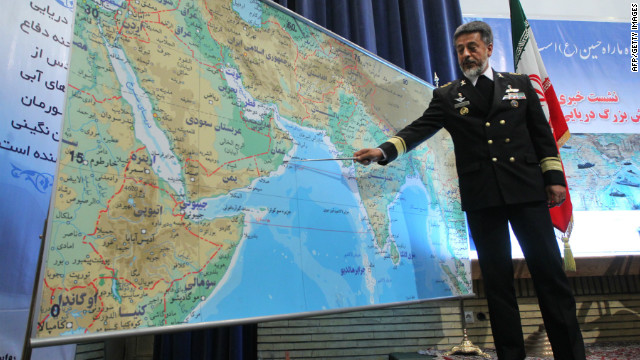 |
| Jesus Diaz |
Por Servando González*
La repentina muerte de Jesús Díaz, un conocido escritor cubano en el exilio, ha desatado y seguirá desatando, una avalancha de artículos sobre su brillante carrera como escritor y editor. Pero hay un aspecto oculto de la vida de Jesús Díaz que no ha sido explorado todavía: su posible conexión con los servicios de inteligencia castristas. Este artículo explora esa conexión.
----------------------------
Conocí a Jesús Díaz a comienzos de la década de los sesenta, cuando un común amigo me lo presentó en la biblioteca de la Escuela de Letras de la Universidad de La Habana, donde Jesús a la sazón enseñaba filosofía marxista. Recuerdo que Jesús traía en sus manos el manuscrito de un libro de cuentos que había enviado al concurso de la revista Casa de las Américas, y me dio a leer un par de ellos, que devoré en unos minutos en la propia biblioteca. Recuerdo haberle dicho que tenía un premio en las manos. Resultó que no me equivoqué: Los años duros fue uno de los libros galardonados.
Después nuestros caminos se apartaron (yo ya había tomado el camino del exilio interior), y dejé de verlo luciendo su inseparable boina verde olivo por la Universidad. Alguien me comentó que Jesús había sido tronado cuando Raúl Castro disolvió la revista Pensamiento Crítico, y Jesús fue a parar al limbo cubano. Años después me enteré de que andaba por el ICAIC (Instituto Cubano de Arte e Industria Cinematográfica) que, junto con la Casa de la Américas, eran los refugios de los intelectuales y artistas castristas que por avatares del destino habían sido defenestrados.
Para reivindicarse, Díaz se esforzó en el ICAIC en probar más allá de toda duda su ortodoxia fidelista. No sólo realizó cortometrajes, como el panfleto propagandístico 55 Hermanos sobre un grupo de jóvenes exiliados y descendientes de exiliados cubanos en su primer visita a Cuba, que muestran su amor por Fidel Castro y su obra, sino que también escribió guiones y realizó películas de argumento. Ese esfuerzo lo reivindicó a los ojos del castrismo.
Tal parece que los graves problemas sociales, éticos y morales, por no mencionar los políticos y económicos, que confrontó la nación debido a los desatinos de Fidel Castro no lograron conmover las profundas raíces castristas de Jesús Díaz. En 1982, un año después de los vergonzosos sucesos del Mariel --reedición tropical de la persecución a los judíos al inicio de la Alemania nazi-- Díaz gana el Premio IV Concurso de la Sección de Cine, Radio y Televisión de la UNEAC (Unión de Escritores y Artistas de Cuba), por la realización y el guión de Polvo Rojo. En 1986 su estrella todavía brilla reluciente, y obtiene una Primera Mención de Argumento en el I Festival de Cultura Cubana en Burdeos por Lejanía, considerada la primera película que aborda el tema de las relaciones entre cubanos de la Isla y el exilio --desde un punto de vista castrista, por supuesto.
¿Cuál era la posición política de Jesús Díaz mientras vivió en la Cuba castrista? Todo indica que era totalmente ortodoxa. En su libro Cuba, Jacobo Timerman lo califica de "Stalinista", así como de ser "el escritor que mejor expresa la línea del partido". Timerman no exagera. Según algunos que siguieron de cerca su carrera, cuando Jesús Díaz era director de la revista El Caimán Barbudo hostigaba a aquellos a quienes consideraba que no tenían como él una posición castrista ortodoxa (extremista).
En una carta abierta a Carlos Monsiváis publicada en la revista electrónica La Jiribilla el 30 de Junio del 2001, los redactores (léase "compañeros" de la inteligencia castrista), afirman que Díaz "Fue un perseguidor de homosexuales en los años sesenta, como bien lo saben los fundadores de Ediciones El Puente; se sumó a la campaña contra Paradiso en nombre de la 'moral revolucionaria'; y fue detractor de la persona y la obra de Reinaldo Arenas." Sin embargo, debido a un problema de amnesia selectiva, los "redactores" no mencionan que Jesús Díaz también fue Secretario del núcleo del partido "comunista" (el fidelista, no el PSP), en el ICAIC.
Mas >>-------------------------------
*Servando González es un escritor y analista de inteligencia norteamericano nacido en Cuba. Entre sus libros se encuentran Historia herética de la revolución fidelista y The Secret Fidel Castro: Deconstructing the Symbol publicado a comienzos de este año. Ambos libros pueder ser adquiridos en el sitio de la casa editora, http://www.intelibooks.com



























